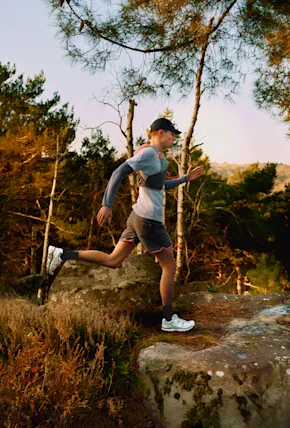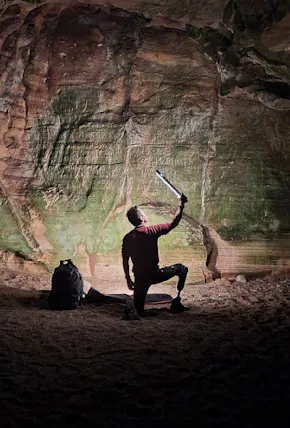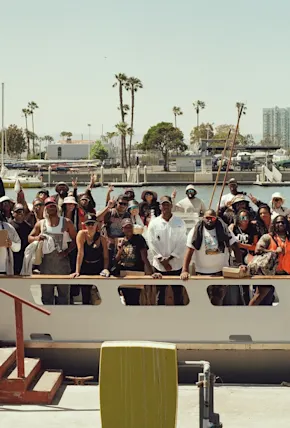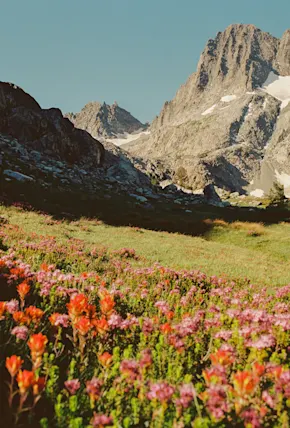Tawny Newsome wants to see a Black woman become the face of a major outdoors brand. She wants to return to the Tour du Mont Blanc. And she wants to answer that question you have on whether that one thing you said is racist or not (it probably was, sorry). An actor, a comedian, a musician, and an avid outdoorist, Tawny is a rare multi-hyphenate talent that’s starting conversations and breaking down barriers.
Tawny had no “ah-ha moment” in embracing the outdoors and building a relationship with nature. She's always had one, having grown up on a farm with horses and chickens in coastal Northern California. As a result, she is noticeably calm. The type of calm that only people who spend vast amounts of time traversing the outdoors possess.

She credits her outdoor adventures in helping her stay at ease on set. And apparently, it's working, because the work isn't stopping for Tawny, even amid a global pandemic. Whether it’s promoting her recent Netflix show Space Force—on which she plays the first Black woman on the moon, alongside Steve Carell, Lisa Kudrow, and John Malcovich—recording for Star Trek: Lower Decks, a new adult animated comedy series, or filming another IG video series to educate new outdoorists, she’s making every moment in the limelight count. And she’s really funny while doing it.
We recently caught up with Tawny over Zoom to talk about her love for nature, the dualities of being biracial, how she’s advocating for BIPOC in the outdoors and the foundational role an encouraged childhood spent riding horses in small rodeos, taking dance classes, and monologue courses has played in the successful career she has today.
Listen to the full interview above and read on below for the transcript.
On your new Netflix show Space Force, you play the first Black woman in space. So I have a question for you, which do you prefer: space or the outdoors?
Well, these days, what is the difference? They're both a place that you go to get away from other human beings. There are strange creatures there. Some of which you're interested in and some of which you are not. It can be quite dark and cold in both places. Yeah, having never been to actual space, contrary to what Netflix would show you, I guess I gotta' say I prefer the outdoors. I like earth, man.











